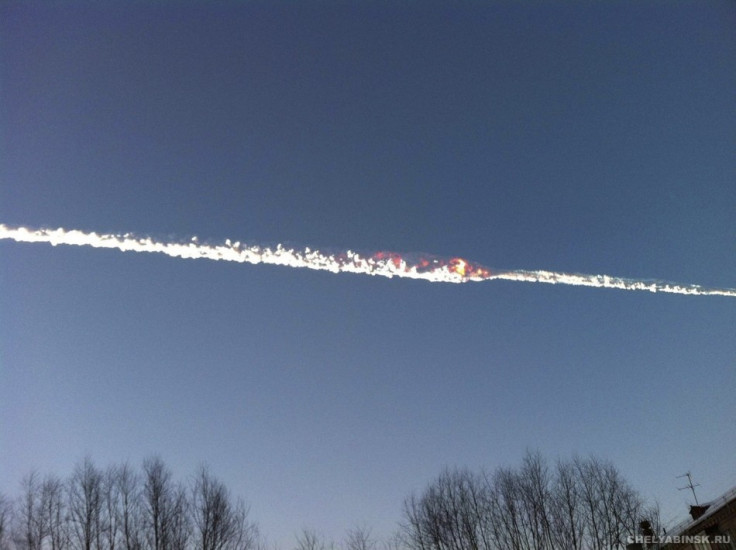Russia Meteorite Blast Equals 500-Kiloton Explosion - NASA
Nearly 1,200 people injured in meteorite explosion in Urals

The shockwaves set off by the meteorite which hit the Ural region in central Russia were nearly equivalent to a 500-kiloton explosion, Nasa has said.
The agency has also denied any connection between the Asteroid that raced past Earth, and the meteorite explosion.
"We would expect an event of this magnitude to occur once every 100 years on average. When you have a fireball of this size we would expect a large number of meteorites to reach the surface and in this case there were probably some large ones," said Paul Chodas of Nasa's Near Earth Object Program Office.
The nuclear bomb dropped on Hiroshima in 1945 released an estimated 15 kilotons of energy.
The energy estimates were based on data collected from five additional infrasound stations. The energy released by the meteorite explosion was initially thought to be around 300 kilotons.
According to the Russian Academy of Sciences (RAN), the object that hit the Ural region and injured nearly 1,200 people was a solitary 10-ton bolide. The object exploded around 30 to 50km above the Earth's surface.
Such objects generally explode in the lower atmosphere, unlike meteor showers, say experts. The showers are potentially dangerous.
The meteorite was travelling at a speed of 30km per second (around 67,000mph). Among the injured were 200 children. Most of those affected suffered only minor injuries, said authorities.
The meteorite was visible from the Chelyabinsk, Sverdlovsk, Tyumen, Kurgan regions and the Bashkortostan republic.
The estimated cost of damage in Chelyabinsk alone is $33m (£21.3m), according to Russian officials.
"The explosion was so strong that some windows in our building and in the buildings across the road and in the city in general, the windows broke," Polina Zolotarevskaya, a resident of Chelyabinsk, told the BBC.
"Suddenly, it was very, very horribly bright. Not like the lights got turned on, but as if everything was illuminated with unusual white light," another Chelyabinsk resident told RIA Novosti.
Many of those injured were struck by shards. Nearly 20,000 rescue workers have been deployed in the Ural Mountains for clean-up operations, said officials in Moscow.
"We must above all think about how to help people. And not just think, we must act," said Russian President Vladimir Putin, who also thanked God that the fragments of meteorite did not fall on highly populated areas.
© Copyright IBTimes 2024. All rights reserved.






